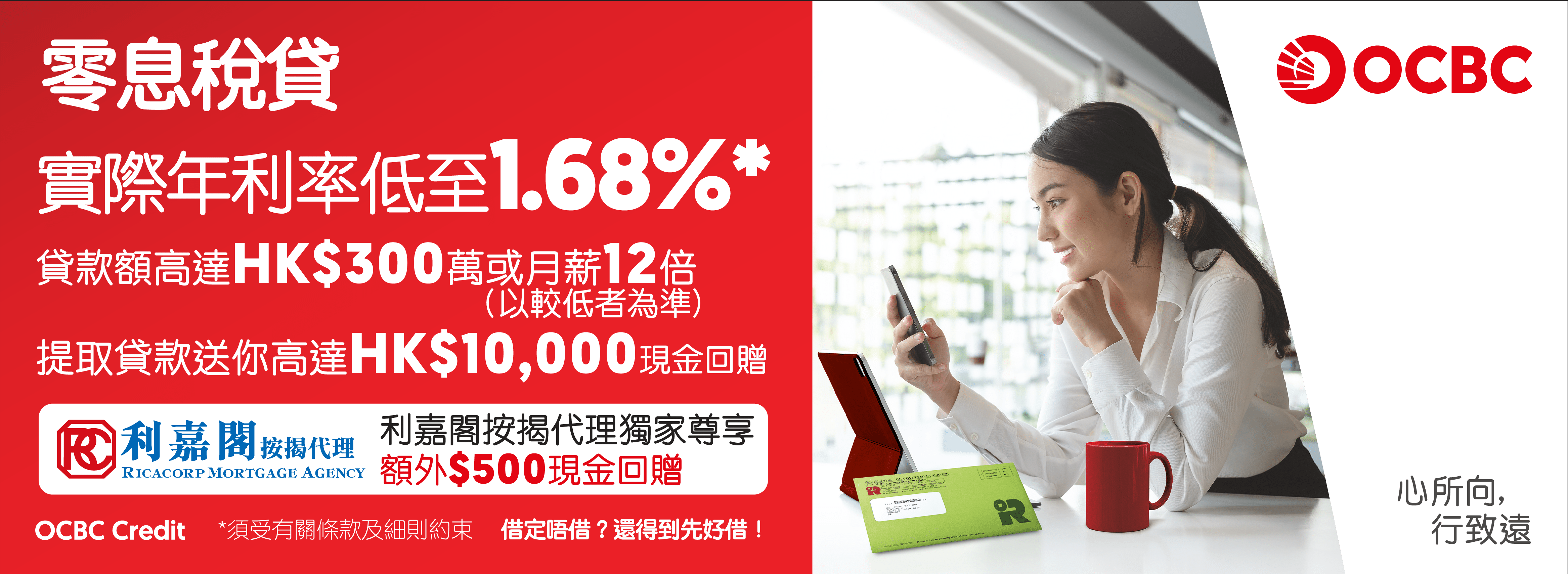- Refinancing
Refinancing refers to the replacement of an existing mortgage loan with another under different terms from another financial institution. The outstanding loan balance and remaining tenor will remain unchanged and be transferred to the new financial institution. Borrower may opt to mortgage refinancing as to enjoy interest rate cut when the market rate is low.
- Actual benefit of refinancing
(a). Interest, Cash Rebate
When the mortgage market rate is in a lower level, home owner may opt to mortgage refinancing or apply equity loan to enjoy interest rate cut or additional cash flow. Cash rebate is another benefit for refinancing, which is usually 1% of the loan amount, based on the mortgage plan selected.
(b). Cost expenditure
(i) Refinancing charge
Borrower should enquire more on its original mortgage loan in terms of penalty period, early prepayment arrangement and all related charges. Borrower should compare the refinancing terms offered by the new bank and the original bank, and choose the most suitable one in terms of interest rate cut and other discounts.
(ii) Penalty Period
Most of the mortgage plans offered by bank include penalty period. Penalty period is usually set as one to three years, generally, the longest period will be three years. Refinancing over the penalty period would be more economical so as to save the penalty charges. Borrower should also enquire more on the interest expenses and other charges after refinancing.
(iii) Legal Fees
Legal fees should be paid for refinancing, which usually cost HK$5,000 to HK$6,000, varied from different solicitors. Bank will offer their approved solicitors to customers as well.
(iv) Insurance Fees
If the refinancing loan is more than 60% loan-to-value (LTV ratio), borrower have to apply for the Mortgage Insurance Programme (MIP) offered by The Hong Kong Mortgage Corporation Limited (HKMC) and pay for the insurance premium. As the premium costs a certain sum of amount, it is not recommended to refinance the original loan which is in high LTV ratio.
- Switching between mortgage products
There are three types of mortgage products in the market, including Prime-based Mortgage (P Plan), Hibor Mortgage (H Plan) and Fixed- rate mortgage. Customers could compare these three types of products in terms of differences on interest rates, penalty period, cash rebate and other discounts before refinancing.
(a) Prime-based Mortgage
Kong Prime rate, which is usually quoted as P – X %. Interest rate may vary according to the fluctuation of Prime rate. P-plan mortgage is more stable and familiar in the market. However, it is unable to provide the lowest mortgage rate in the market.
(b) Hibor-based Mortgage
Hibor-based mortgage is another popular mortgage plan in the market. Its interest rate is calculated in the basis of Hibor rate (Hong Kong Interbank Offer Rate), which is generally calculated by one month Hibor and quoted as H + X%. This kind of product is much more fluctuated. As Hibor rate is easily affected by the domestic capital flow and the external economical factors, the installments of borrower may vary accordingly. As Hibor rate may rise considerably, most of the banks will set a cap to lock up the risk of interest soar.
- Valuation for refinanced property
Property valuation will be conducted by bank for refinancing. If the refinanced loan amount can not cover the original loan, extra fee may be charged.
- Second Mortgage / Equity loan
Customers usually apply personal loan for extra cash flow, however, interest rate for personal loan can be as high as 2.3% monthly flat rate. Its repayment period is usually short, the longest period will be about 3 years while the loan amount will not be too high, usually 3 to 4 times of monthly income. Loan amount is usually linked to the monthly income, which its highest loan amount will be 50-60% of the monthly income. Therefore, second mortgage, also called “Equity Loan”, will be preferred for acquiring large sum of capital flow.
- Actual benefit on equity loan
Equity Loan or Second Mortgage Loan refers to re-mortgage of a property. Loan amount will be approved according to the property value, the higher the property value, the higher the loan amount; the longer the loan tenor, the lower for each installment, the loan amount will be more flexible. Approved loan can be used to repay credit card or any other loans from banks or financial organizations.
- Reminder For Equity Loan
- For second mortgage offered by developer, home owner should notice the developer one month in advance for early full prepayment.
- Bank may charge home owner 3% of loan amount or HK$50,000 as penalty fee for refinancing the loan within the first year prepayment period.
- Property may turn into negative equity if borrower has not understood enough about their mortgage plans.
- Normally, no legal fee will be charged for equity loan.







